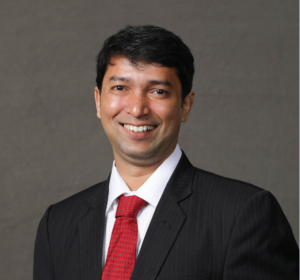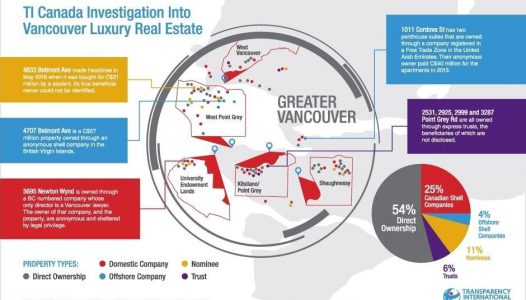by Ahsan Habib
Let’s start with talking about greed which is the ethical root cause of corruption. At the root of corruption it has always been the culture of greed which enables accumulating wealth at any cost and without limits. When greed has power, we name it corruption. Corruption is a primary incubator for the global surge in organised crime. And it has a long history. Al Capone who was once one of the most wanted men for the U.S. Treasury, allegedly paid 20 cents of every tainted dollar he earned to ‘pay off’ government officials and greedy politicians. Since then greedy people never had to ‘look back’ and to stop their ‘winning journey’.
The Vietnamese Scandal: Web of corruption
This scandal is believed to have surpassed the infamous 1MDB Scandal. This case is a recent example of one of the largest embezzlement (around $12.4 billion that equates to over 3% of the country’s Gross Domestic Product) from a bank. The chairperson of real estate developer (Holdings Group) embezzled this fund from a Vietnamese Bank, of which she was a majority stakeholder. Holding companies, a vast network of more than 1,000 domestic & foreign subsidiaries as well as shell companies and other ‘ghost companies’ were created by her and her family and associates.
Qatargate Scandal: Also known as ‘Belgium Gate’?
This scandal is a classic reason behind urgency of establishment of an International Corruption Court, (not a tennis court on which the ‘corruption game’ is played). Qatar allegedly influenced the economic and political decisions of the European Parliament, by paying large sums of money and offering large gifts to third parties with a significant political and/or strategic position in the European Parliament. As an outcome of this case, vice president of the European Parliament (who visited Qatar shortly before the World Cup) along with her husband (who was her parliamentary assistant too) were charged with participation in money laundering and corruption and got imprisoned.
Tale of ‘Mr. X’ and a Greenbelt: Made in Canada
Not a tale from the ‘Arabian Nights’. Nexus between lobbying and bribery/corruption can never been ignored. Let’s not utter the name here, one ‘Mr. X’ not even years ago, had been identified by Canadian media for his alleged involvement in unregistered lobbying for removal of land from the Greenbelt (come on guys, let’s exempt the greenery for the sake of mitigating climate change) of Canada’s largest province Ontario. Mr. X was one of the two consultants who were hired by a landowner to get 34 hectares of land removed from Greenbelt (which is a large area of protected forest, farmland & wetlands) and rezoned for development. During this ‘lobbying’ process, paid lunch, golfing, VIP tickets to Toronto’s famous basketball matches and assurance of million-dollar payout were provided to influencial people of the related Ministry while violating the province’s land-use policy.
1 Malaysian Development Fund Bhd (1MDB) scandal
This was (until the ‘Vietnamese Scandal’ was revealed) one of the largest financial scandals in the Anti Financial Crime space in recent history. This sovereign wealth fund was meant for investment fund that manages the savings belonging to the state by investing them in multiple ways such as shares, bonds or in real estate. However, this noble purpose later turned into embezzlement and laundering of billions of US dollars, derived from bribery and false declarations of bond prices with the help of bankers, businessmen, and senior government officials mostly from Malaysia, the UAE, and Saudi Arabia. The scandal has led to investigations not only in Malaysia but in other countries (Singapore, Switzerland, UAE, USA, Australia, New Zealand, UK, Hong Kong) where embezzled and other illicit money have been laundered and parked. Former Director of Goldman Sachs, (a leading global investment banking and securities firm), was convicted with charges of money laundering and bribery for his role in the multibillion dollar looting from the scheme, including bribing Malaysian and United Arab Emirates officials as well as violating Goldman Sach’s internal accounting controls. He faces up to 30 years behind bars for helping ransack over $4 billion from the Malaysian state fund. A complex web of opaque transactions and fraudulent shell companies enabled lavish spending by corrupt officials and their associates. Personal and family intermediaries and proxies were used to make it difficult to track the final destination and ultimate use of the embezzled money. Large amount of embezzled money from 1MDB passed through banks in Switzerland. Bond interest rates were set well above market rates. False statements were prepared and submitted by senior officials of 1MDB to Malaysian Central Bank and to banks from which loans were obtained.
FIFA and IOC Scandal: Host country selection ‘on sale’?
FIFA World Cup in Qatar serves as a reminder of the corruption that seems to accompany the awarding of hosting rights for major international sporting events. Some of FIFA selection committee had been accused of selling their votes while selecting host country. In another scandal, nine members of the International Olympic Committee (IOC) were accused of being bribed to vote for granting Brazil the hosting rights for the 2016 Olympic Games. These scandals unfortunately made the entire process of selecting host cities and countries for major international sporting events vulnerable to bribery and corruption.
How AML Data analytics can play role in the fight against corruption?
Data analytics in a Financial Institution’s Anti Bribery & Anti Corruption (ABAC) compliance programme may assist organisations in:
- Flagging individual transactions indicative of bribery and corruption risks or identifying outliers;
- Considering major corporate actions (e.g. merger, acquisition, divestment) as high risk factors that are indicative of ABAC risks;
- Risk ranking, scoring or prioritising of different ABAC risk factors;
- Setting up data-driven real-time alerts of high-risk transactions; and
- Leveraging analytics tools to support both AML and ABAC teams using same/similar metrics.
Ending corruption is a moral calling, isn’t it?
This greed-driven crime is like a gangrene for societies and humanity. If we come together, we can mend a crack in the sky. So why not we start it today ? Our unified actions may enable the word ‘Corruption’ turn into the phrase ‘once upon a time, there was a thing called corruption’ and our children will fall asleep while shaming corrupt people just like the same way our next generations will one day shame the children assassinators in conflict zones.
1) Vietnam Grapples with Historic $11.4 Billion Corruption Scandal – BNN Breaking
2) https://www.forbes.com/sites/sergeiklebnikov/2022/04/08/former-goldman-banker-roger-ng-found-guilty-of-looting-billions-from-malaysian-state-fund/
3) Malaysia’s ex-PM Najib jailed after appeal in 1MDB case rejected | Corruption News | Al Jazeera
4) From the World Cup to the Olympics: Why Are International Sporting Events So Corrupt? | GAB | The Global Anticorruption Blog
5) https://www.cbc.ca/news/canada/toronto/greenbelt-unregistered-lobbyist-development-1.6955297
6) ‘Qatargate’: What we know about the suspected corruption at the European Parliament (lemonde.fr)
7) Anti-Bribery and Anti-Corruption: Data-driven Compliance Programmes – Lexology
The author, Ahsan Habib, works in the Canadian Anti Money Laundering space. He is a seasoned banker from Bangladesh where he worked in Correspondent Banking and Trade Finance in top ranked banks. He got recognised as ACAMS AFC Professional of the year 2021 and Professional of the Month (August 2020). Ahsan has also been named ‘Top Risk Management Voice’ by the world’s largest professional platform LinkedIn. He is also a Member of Advisory Board of Financial Crime Academy (FCA), UK. He has certification on Trade-Based Money Laundering from Canadian Securities Institute, certification on Sanction related various courses and certification on ‘BSA/AML: An In-Depth Look’ from Bank Administration Institute (BAI), USA.







